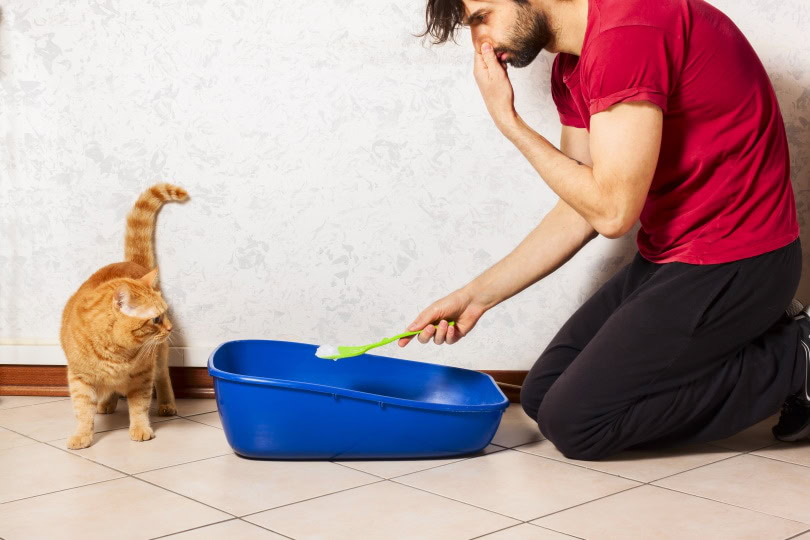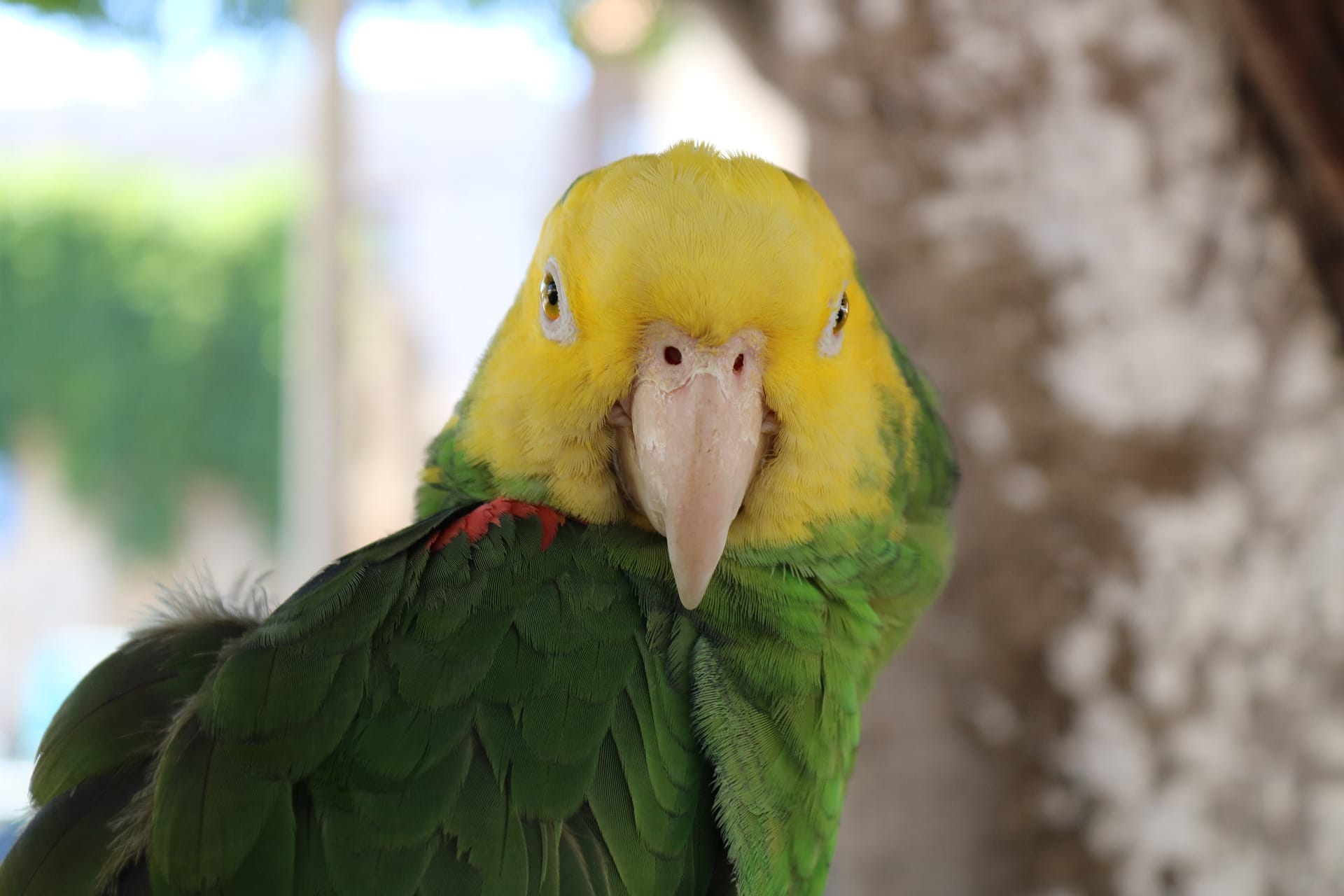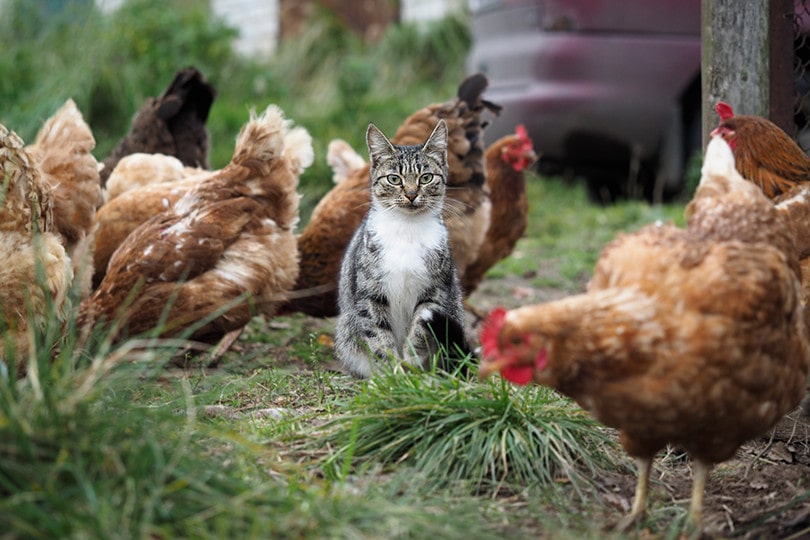Cats are amazing creatures. They are tiny, furry, adorable little balls of fluff that are somehow capable of producing some of the most noxious odors on the planet.
If you’re tired of being carpet-bombed out of your own home by one of these cute little garbage disposals, take heart: There are things that you can do to minimize the odors emanating from the litter box.
Some of these tips are quick and easy to implement, while others require more work. They all have one thing in common, though: They’re much more pleasant than dealing with another room-clearing bathroom break from your cat.

Top 12 Ways to Reduce Cat Litter Box Smells
1. Clean It More Often
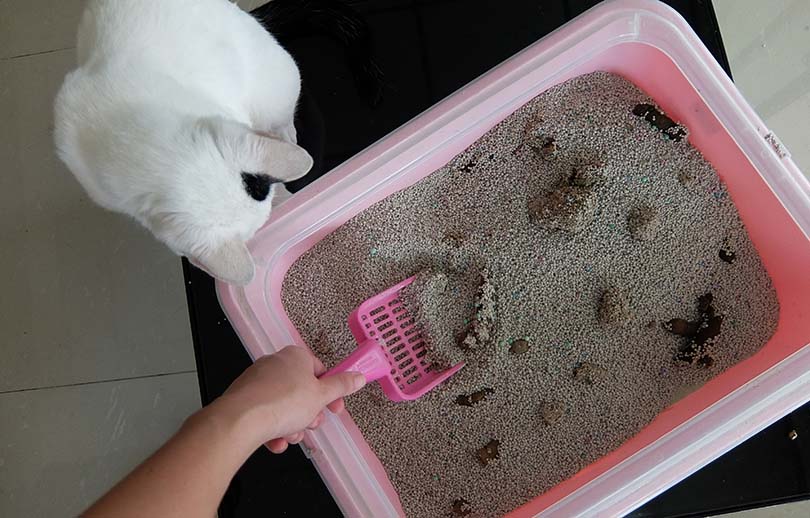
The best way to prevent odors from building up is to remove the source as often as you can. Try to scoop out the litter box every day if possible, or you can clean it every time they go in.
This is easier to do if you have something like a Litter Locker at home, as you can just dump the dirty litter inside instead of having to get a fresh bag every time. It also works well if you use flushable litter.
This may seem like a more labor-intensive solution, but scooping it every day makes it much quicker and easier to clean. It’s worth spending a few seconds with a scoop to save you from spending hours dealing with odors.
Wondering whether an enzymatic spray or deodorizing powder is better at fighting pet odors? Compare Hepper's Pet Stain & Odor Eliminator Spray to their Litter Deodorizer Powder to see which product is best for your deodorizing needs.
| Image | Product | Details | |
|---|---|---|---|
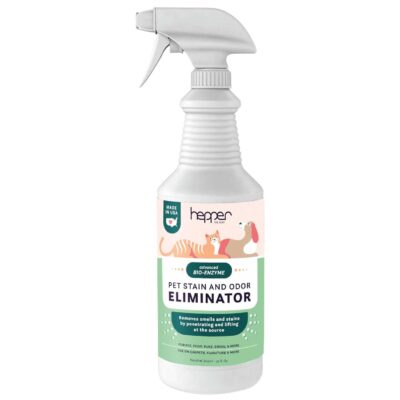 |
Hepper Advanced Bio-Enzyme Pet Stain & Odor Eliminator Spray |
|
Check Price |
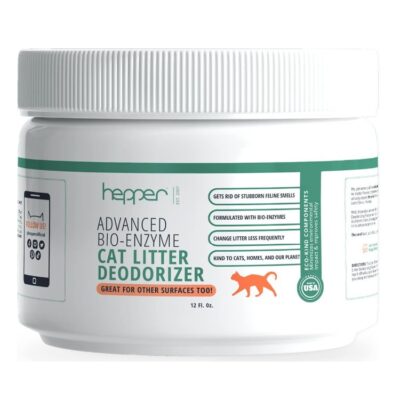 |
Hepper Cat Litter Deodorizer |
|
Check Price |
At PangoVet, we've admired Hepper for many years, and decided to take a controlling ownership interest so that we could benefit from the outstanding designs of this cool cat company!
2. Replace the Litter Regularly
Many owners simply scoop the dirty litter and refill the box when it gets low. The problem with this is that while it may contain messes, it does little to stop bacteria and other microbes from building up, and that can be the source of many odors.
About once a month or so, you should dump out the entire box of litter and wash the box with soap and water. Then, refill it with completely fresh litter. Not only will your cat appreciate the fresh bathroom, but it will do a great job of preventing odors from starting.
There are also subscription services that send you a fresh new box of litter every month; with these, you can simply throw the box away at the end of the month, saving you the hassle of having to clean it.
3. Throw the Entire Box Away
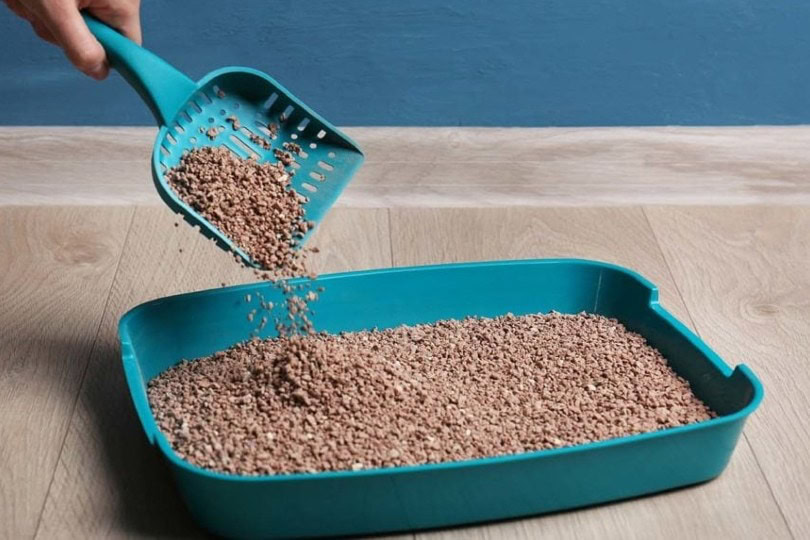
Sometimes no amount of scrubbing can save a litter box; the odors are too deeply embedded into the material. This can happen with any kind of litter box, but plastic ones are especially vulnerable.
The problem is that as your cat digs through the litter, they create small grooves at the bottom of the box. These grooves become havens for odor-causing bacteria and fungi, and they can also lead to disease-causing microbes infecting your cat.
You should toss the entire box once a year and start fresh. Another option is to use litter liners inside the box; this way, you can just toss the liner every month or so without needing to replace the box itself.
4. Mix in Tea Leaves
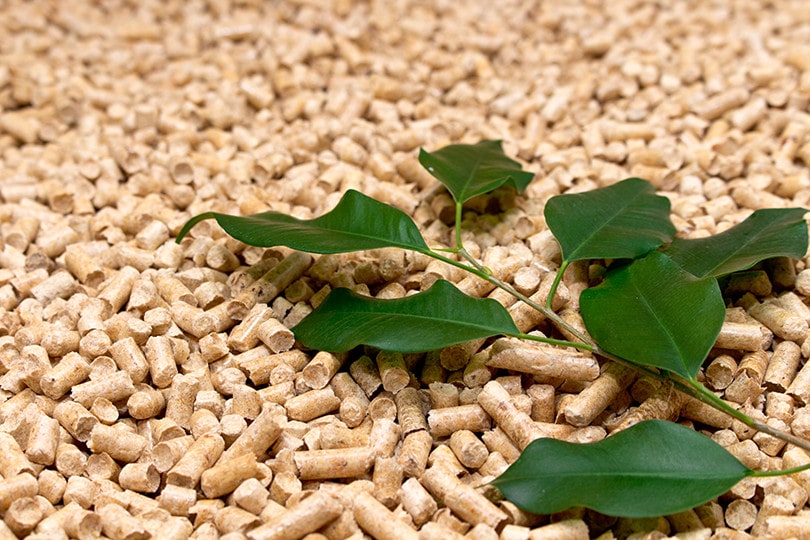
This may sound like an odd solution, but green tea leaves have anti-bacterial properties and are excellent at absorbing odors. Simply dry out a few leaves, grind them up, and mix them in with the litter.
If you’re worried about your cat eating the leaves, you can brew them before drying them out and mixing them in. Just be sure to brew and drink the tea before you use it in the litter.
5. Switch Litters
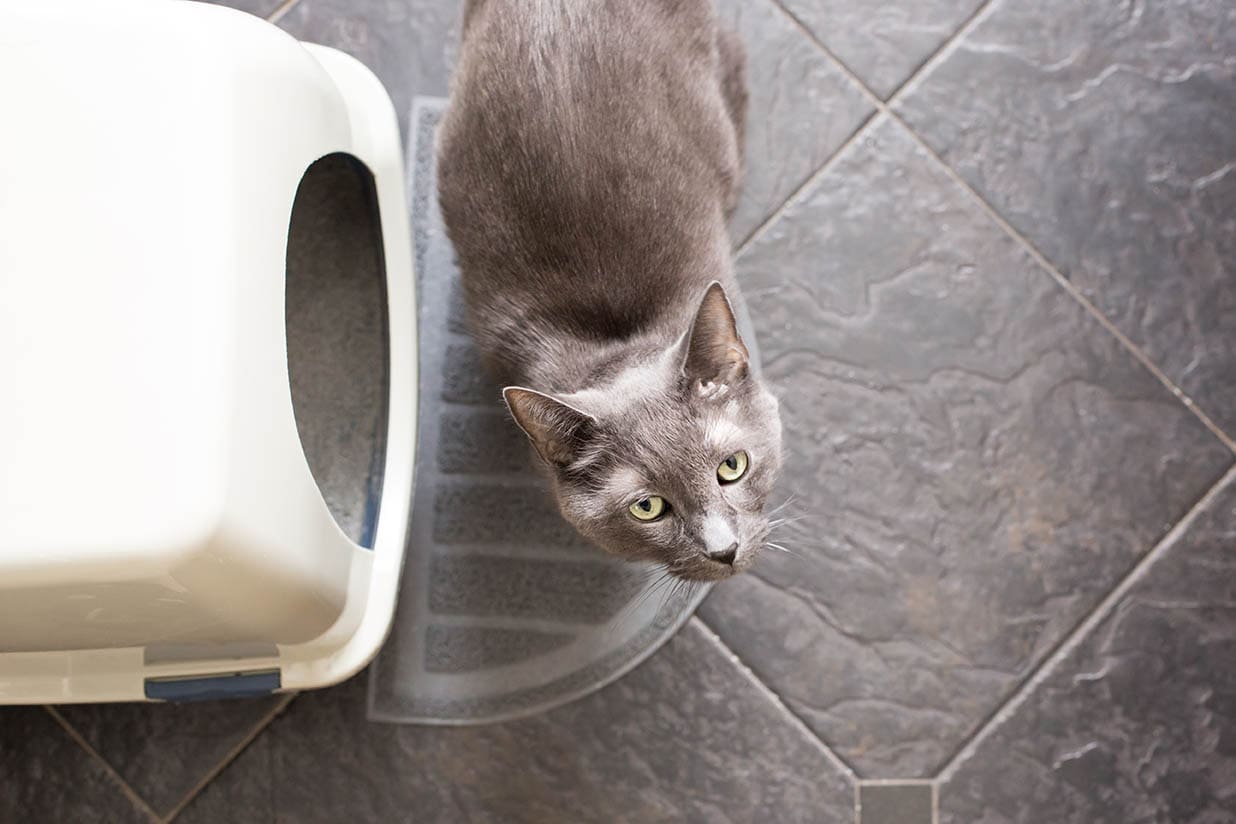
If nothing that you’re trying seems to work, the litter itself may be the problem. Not all litters are equally good at absorbing odors, so you might want to experiment with something new to see if it performs any better.
Clumping clay and pine-based litters are excellent at neutralizing odors, so they might be a good place to start. Paradoxically, unscented litter may be a better choice than perfumed stuff because it reduces the risk that your cat will be overpowered by the smell, which could make them messier than usual. Also, some fragrances don’t mix well with poop and pee odors, creating an awful cocktail that’s worse than the waste itself.
Just don’t change the litter that you use too often, or your cat may stop using the litter box altogether.
6. Move the Litter Box
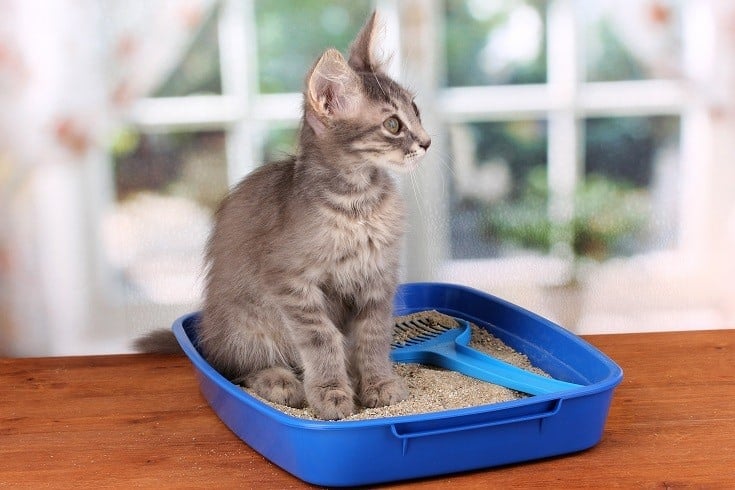
This solution won’t do anything to help the smell coming from the litter box, but it may prevent the odor from spreading throughout the house. Put it in a well-ventilated area so the fumes dissipate rather than build up inside.
Besides finding a well-ventilated spot, you should pick a place that’s bright and has plenty of room for your cat to maneuver.
7. Add More Boxes
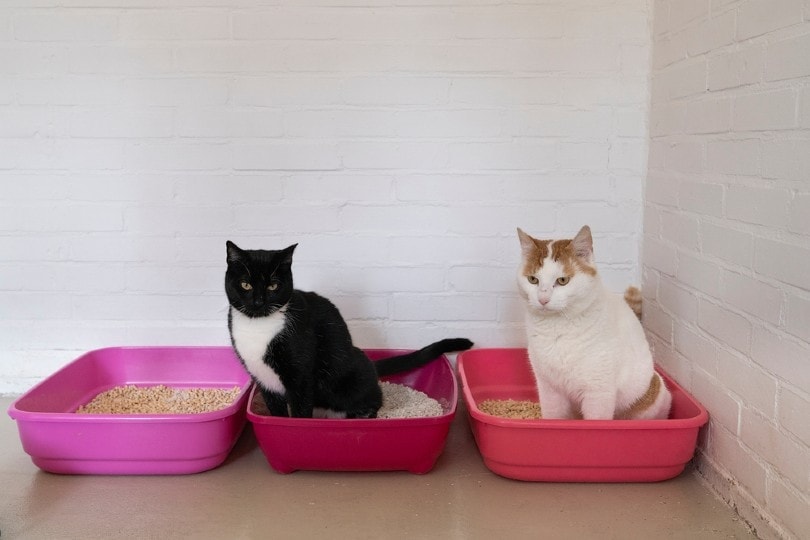
If you struggle to clean the box regularly, you might want to add more boxes throughout the house. This gives your cat more options while reducing the risk that they’ll stop using the dirty box.
If your cat spreads their business through multiple boxes, that makes it less likely that the waste will become concentrated and create awful smells.
8. Use a Different Type of Litter Box
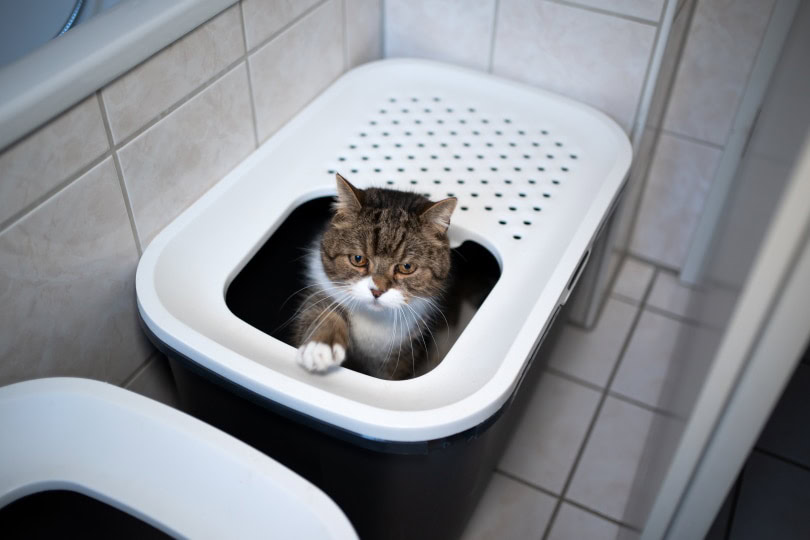
Litter boxes come in all shapes and sizes, and some have doors or hoods. These are usually better for odor control, as they keep the smell inside rather than letting it permeate the house.
Regardless of what type of box you use, make sure it’s big enough for your cat. They should have enough room to completely turn around and sit down. This makes it easier for them to do their business, making it more likely they’ll go on the litter rather than on the sides of the box.
9. Switch Scoops
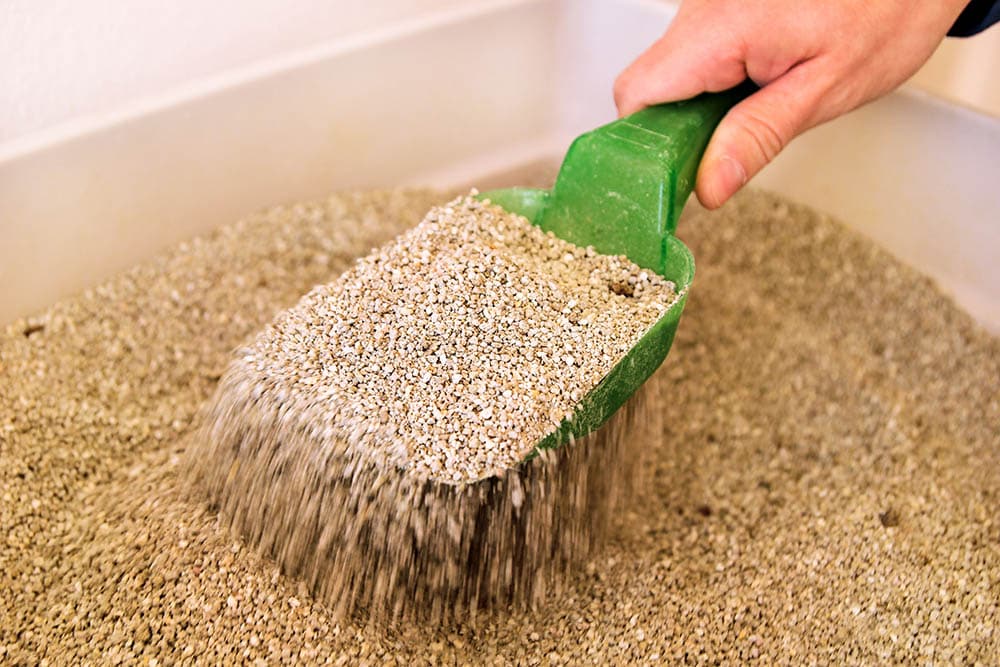
There are as many different types of litter scoop as there are types of litter. Try to find one that has the smallest slits possible (while still being large enough to let loose litter through).
The idea is to remove as much of the waste as possible, even the tiny bits that didn’t clump with the rest of it. If enough of those tiny bits accumulate, they can create a powerful odor.
10. Switch Cat Foods
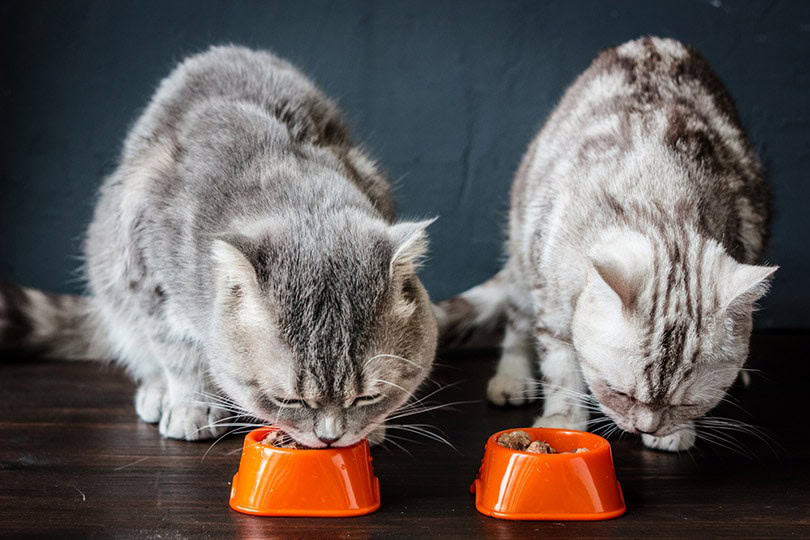
If your cat’s waste is smellier than it should be, the problem might be with their diet. There might be something in their food that disagrees with their digestive tract, and by eliminating the source of the problem, you may be able to reduce the amount of odor that they produce when they go.
Always look for food that’s meat-based and packed with protein, and avoid problematic ingredients like wheat, corn, soy, or animal by-products. However, a cat could have a sensitivity to almost any kind of food, so you may need to perform an elimination diet to find the culprit.
11. Talk to Your Vet

Unusually foul-smelling waste could be a sign of a health issue with your cat, so you should have them checked out by a vet. There may be something more serious going on, so you should rule that out as soon as you can.
Some issues have easy solutions, while others are far more serious. Regardless of the cause, though, it’s important to quickly determine what’s causing the issue to give your cat the best chance of recovery.

You Don’t Have to Live With a Stinky Litter Box
The most important thing to keep in mind is that an awful-smelling litter box isn’t something that you have to tolerate. There are ways to reduce or even eliminate the problem, and while it may take a bit of effort, the results will be well worth it in the end.
At least one of these solutions will likely solve your issue, and many of them are just good ways to keep your cat happy and healthy. Just don’t give up!
See Also:
Featured Image By: xamnesiacx84, Shutterstock
Contents
- Top 12 Ways to Reduce Cat Litter Box Smells
- 1. Clean It More Often
- 2. Replace the Litter Regularly
- 3. Throw the Entire Box Away
- 4. Mix in Tea Leaves
- 5. Switch Litters
- 6. Move the Litter Box
- 7. Add More Boxes
- 8. Use a Different Type of Litter Box
- 9. Switch Scoops
- 10. Switch Cat Foods
- 11. Talk to Your Vet
- You Don’t Have to Live With a Stinky Litter Box
